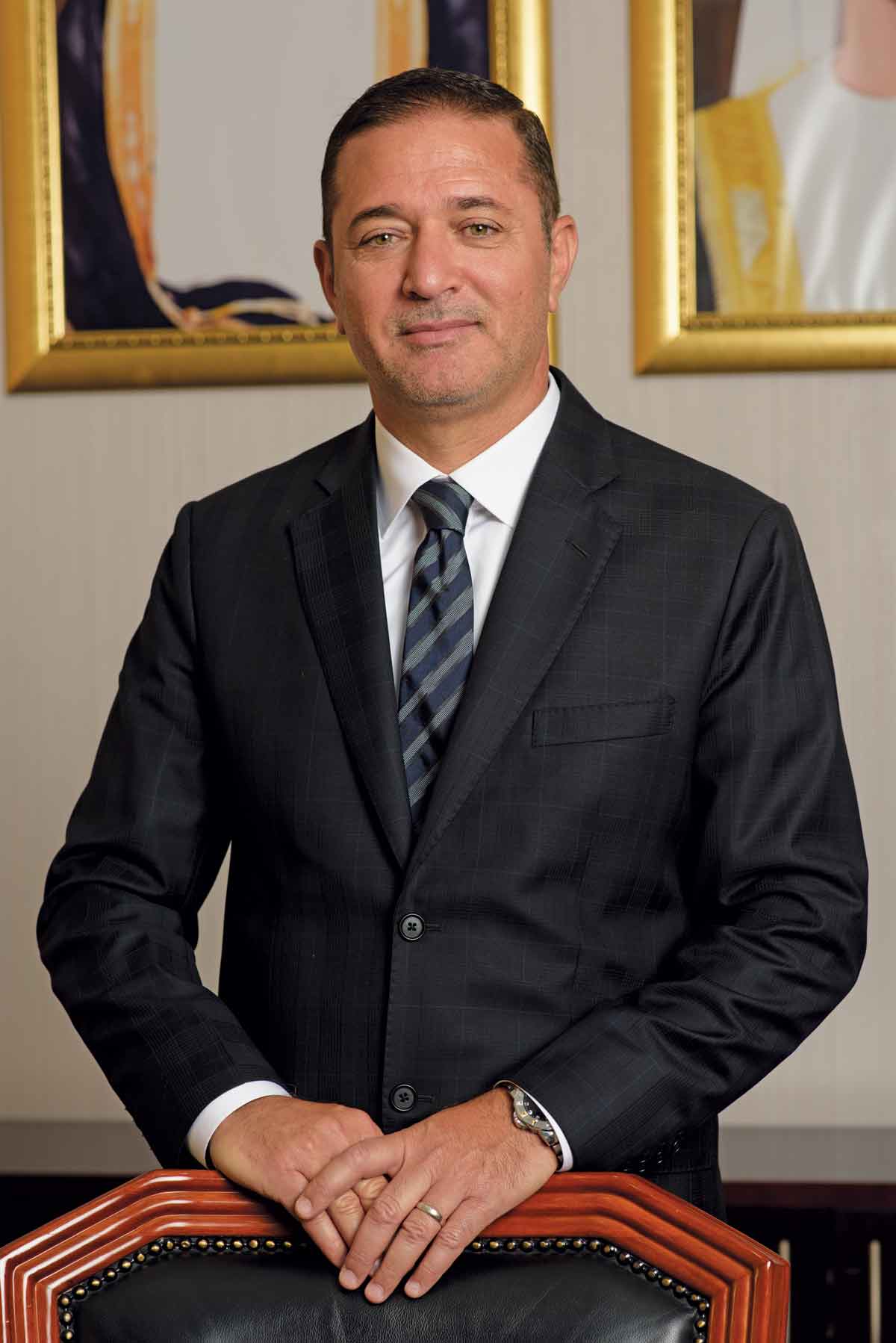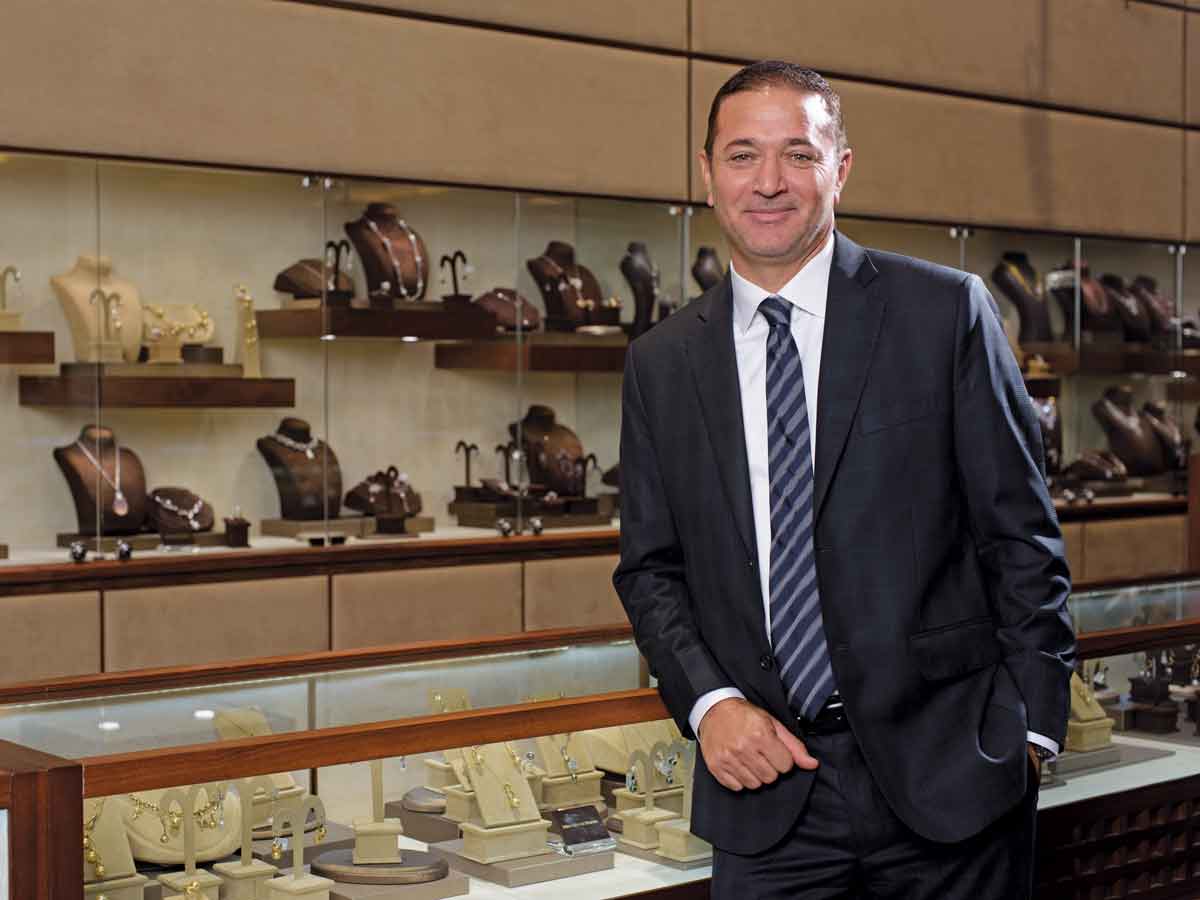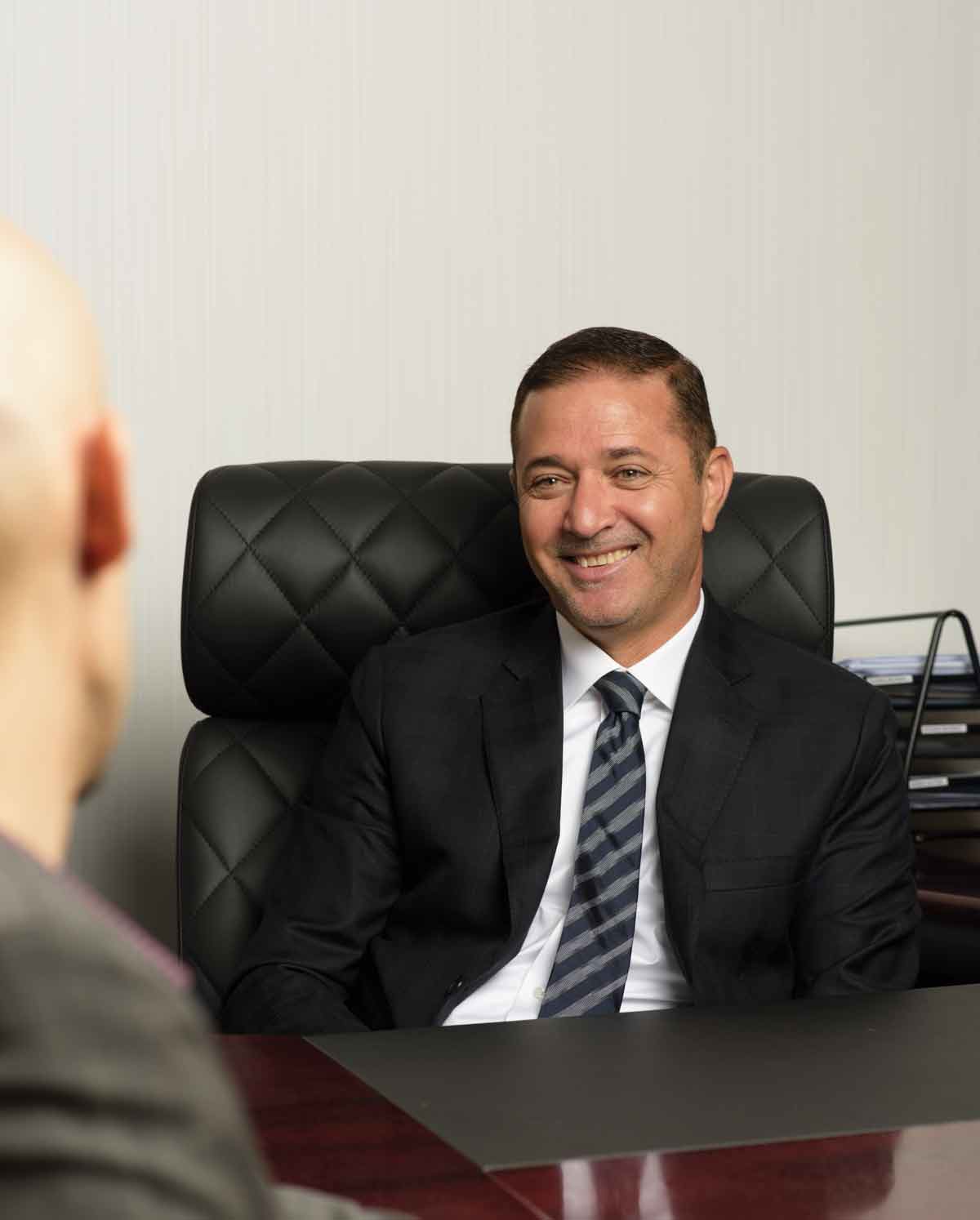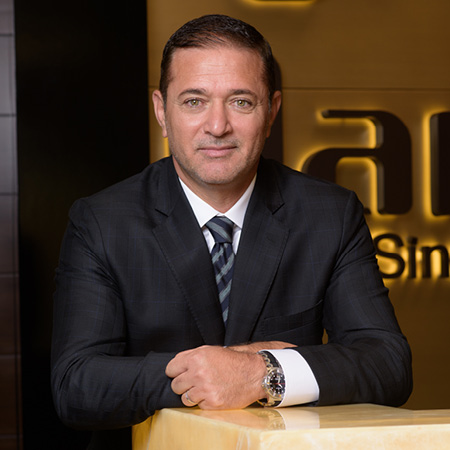When people in the United Arab Emirates and Middle East think of a jewellery brand, their mind quickly goes to Damas. And that’s the way it has been for many years. Established in 1907, Damas has forged its way to become a household name and a very serious player in the Middle Eastern marketplace and beyond. It is headquartered in Dubai and has a strong portfolio of international brands sold in its 300-plus retail stores across the region.
Anan Fakhreddin first joined Damas in early 2010, coming from a professional background in the gold and precious gem industries. He had previously held executive roles with the Diamond Trading Corporation and the World Gold Council, and this experience meant that he wasn’t a stranger to the Damas business when he was appointed as its CEO.
“I was fully aware of what Damas stood for,” Anan recalls. “I knew its strengths and locked potential, and the situation that the company was in. That played a critical role in terms of why I decided to take on the position. I could see the full potential of the brand; which has a 100-year-old legacy, and is a leader of the jewellery sector in the Middle East. I knew it could become highly successful globally, and I envisioned how it could lead the way in select international markets.”
A 360-degree change for the brand
Almost immediately after accepting the role, Anan set about redefining the future of the Damas brand, a task that he admits, “was a huge assignment”. “Even five or six years ago, Damas didn’t quite have the agility to adapt to the nuances of the global marketplace. The brand was there in terms of awareness — we still enjoyed 100-per-cent top of mind recognition in the region — but the issue was developing Damas’s presence and visibility globally. We wanted to make sure that the company’s evolution was streamlined so that it could be positioned correctly for future international opportunities. That was a big challenge, but I am thrilled to say that we have now repositioned Damas; we have changed our product and retail strategies, the structure of our shops, and the look and feel of our shops.”

According to Anan, it was a 360-degree change. The branding was overhauled, the logo updated, and a new corporate campaign was launched. These developments were all made with the intention of inspiring Damas’s multicultural customer base and evolving to meet the present-day market demands. There were also changes within the sales force. “I can proudly tell you that the type of salesperson that stands behind the counter in a Damas store today is completely different to what they used to be,” Anan says. “Although they are still the same person, they are much more knowledgeable. We are now conducting extensive and tailored training programs every year, and our people are coming to the head office for refreshers on their product know-how, focusing on the jewellery, gems, and maintenance of the products.”
I could see the full potential of the brand; which has a 100-year-old legacy, and is a leader of the jewellery sector in the Middle East.
Additionally, the business has added two new disciplines as part of its sales force improvement initiative. The first has been integrating with the Gemological Institute of America (GIA), the authority responsible for diamond and jewellery training. As part of that, each year Damas has been sending between 200 and 250 members of its sales force to become certified by the GIA. “I am proud to say that every Damas shop has at least one GIA-certified gemologist in the shop, except for our boutiques where all our staff have gone through the GIA-certification process.”
The second has been bringing brand behavior management into the picture. Anan explains: “We started looking at the quality of the experience that was offered by Damas: What was the best benchmark globally? What kinds of extra services could we bring into the shop? How could we treat our customers better? We have put all of that into a training manual and we have been running it across our key markets. We have linked it to our staff-incentive system and their performance evaluations at the end of the year. We also have a mystery shopping initiative that we do every quarter to make sure that we give correct feedback to our staff. In summation, we give our employees the tools and the know-how to be successful in their jobs. We have brought in the best disciplines from around the world in terms of customer service and everyone is systematically trained and coached.”
While rolling out these changes, Anan says there have been plenty of challenging moments. The volatility of the global economy has been a big one, particularly back in 2010 when markets were recovering from the recession and experiencing turbulent times. The instability of gold prices was a huge concern for Damas, as it is a retailer stocking between seven and eight tonnes of the resource. “We really managed to dodge a bullet at the last minute when it comes to our gold position,” Anan says.
Jewellery is a closed industry which demands a well-defined skillset
“Evidently there were some big external threats happening and thus it was my immediate requirement to build a very strong management team that could look after Damas over the long term. It wasn’t an easy task when you consider that jewellery is a closed industry. It’s not like the rest of retail where you might do perfumes today, fashion the next, and electronics the day after that. Although jewellery is part of the retail industry, it’s a very specific segment. It requires a well-defined skillset and I am proud of the fact that we have managed to put a great team together that can really look after the business and give it the attention it deserves.”

Our four brand pillars are: trust, craftsmanship, innovation, and market leadership stemming from Dubai.
Anan leads Damas with an open management style that stretches across all levels of the business. He hasn’t forgotten its history as being a family-owned and -operated enterprise, and has kept the values associated with that as part of the company culture. He is heavily involved in all aspects of Damas’ operations, from customer interaction to the onboarding of new staff. In fact, Anan will often spend long days interviewing twenty-plus candidates for an entry-level sales position to ensure they align with the brand.
“I see myself as the guardian for the Damas brand, and that is an area where I will never compromise. These days we have a very well-defined team that looks after the business. Every person in every department knowns what their responsibilities are and that is the kind of culture we have created. We have a very knowledgeable, well-trained, and highly experienced team from all over the world. We have a Belgian Chief Financial Officer who joined us from Corfu in Greece, a jewellery veteran who was with Cygnet Jewellery UK for almost thirty years prior to coming to us, and a Scottish HR Director who has been active in the region for a very long time in different capacities; that is how well diversified the team is.”
Furthermore, Damas has a highly diversified network of suppliers and corporate partners — there are more than 420 of them in locations all over the world. The majority of these relationships are longstanding and this is because Anan recognises that they play a critical role in Damas’s success, especially when it comes to the inflow of fresh and reasonably priced creative designs. “That is our bread and butter, so to speak, and it has to happen 365 days a year, forever,” he states.
“Maintaining that list of suppliers and making sure we talk to the right people on a global level is a key part of what we do. To support all of this we started looking at our inventory management systems because obviously your relationship with your suppliers will always depend on the product you get from them. We now have a state-of-the-art system that looks at the product data every day, analyses it, and gives the right directions to the product team to ensure that we know what products are running fast, where to get them from, and where consumer taste is heading. That will help us to understand where the future is going in terms of consumer demand. Then all of that data will help us manage our relationships with our suppliers better than ever before.

“I should add that supplier relationship management is a bit easier for Damas than most businesses in the market because of the scale that we are lucky enough to enjoy. We constantly receive requests for meetings or interest letters from suppliers on a global level, from Brazil through to the US, China, and India. They are all suppliers who are interested in doing business in the Middle East and when you want to do business in the region, Damas is usually the first name that comes to mind.”
These relationships allow Damas to serve its client base, which is also highly diversified, in an extremely effective manner. “If you think about Damas today, while we’re a global company, the highest rate of shops we have is in the UAE, mostly in Dubai,” explains Anan. “We have shops in the Gold Souk, Dubai Mall, Karama, Burj al Arab, and so on. We look after people from 180 different nationalities who come and visit Dubai, or who live in Dubai. We will never be a purely local operation however, and that’s why we work closely with international and multicultural partners. For instance, some of the biggest Chinese designers and manufacturers help us make sure our product offering is relevant, state-of-the-art, and reasonably priced. And I think this is the value that having a diverse range of suppliers brings; it allows us to look after our diverse range of customers in the best way possible.”
The retail industry is ‘a life-long marathon’
Now that Anan has successfully guided Damas through this period of transformation, he is turning his attention to maintenance — which means ensuring the brand continues to move forward in a positive way.
“The retail industry is a life-long marathon,” he shares. “Therefore, our ability to manage the shops and the product offering we have, while ensuring we deliver good customer service, an excellent product, and unique designs at affordable prices is a continuous journey for us. That takes up 80 per cent of my time in the company because it is so important. Our four brand pillars are: trust, craftsmanship, innovation, and market leadership stemming from Dubai. These values are always on our minds in everything we do to make sure that we are always loyal to the Damas brand and serving it in the way that it deserves.”

